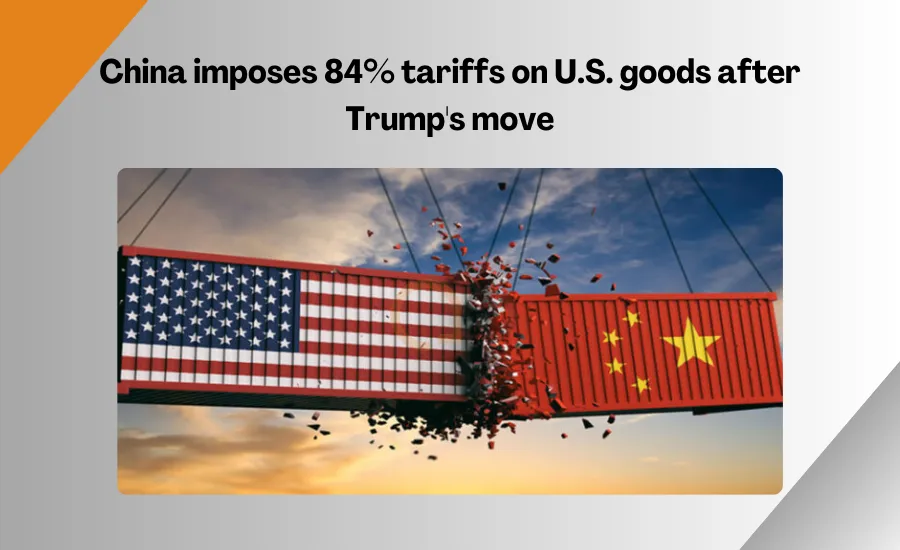China imposes 84% tariffs on U.S. goods after Trump move

China imposes 84% tariffs on U.S. goods against President Donald Trump's tariff policy. Starting April 10, tariffs on U.S. goods entering China will increase from 34% to 84%, according to a translation of an announcement from China's Tariff Commission. This increase is in response to the U.S. raising tariffs on Chinese goods to over 100% starting at midnight.
The back-and-forth increase in tariffs is threatening to hurt trade between the world’s two biggest economies. According to the Office of the U.S. Trade Representative, in 2024, the U.S. exported $143.5 billion worth of goods to China while importing $438.9 billion.
Last week, the Trump administration announced a new tariff policy and warned other countries not to retaliate. Some countries, like Japan, have shown interest in negotiating, but China has taken a tough approach and quickly introduced its own counter-tariff.
After China responded to the April 2 tariff increase, Trump announced an additional 50% hike, bringing the total tariff on Chinese goods to 104%.
Unfortunately, "China doesn’t want to negotiate because they are the biggest offenders in the global trading system", U.S. Treasury Secretary Scott Bessent (TSSB) said to Fox Business on Wednesday after China’s latest announcement. "They have the most unbalanced economy in modern history, and I can tell you this escalation will hurt them."
Later on Wednesday, Trump announced that he was hiking tariffs on China even higher to 125%.
The U.S. had already imposed new tariffs on China before it rolled out its full trade policy in April. China, along with Canada and Mexico, was hit with new levies at the start of Trump’s second term as part of what the administration said was an effort to stop fentanyl from entering the U.S.
The trade war has spooked investors around the world by increasing the odds of slower economic growth, higher inflation, and lower corporate profits, sparking a sharp sell-off in April.
The S&P 500 finished Tuesday down nearly 20% from its peak, putting the U.S. large-cap stock index in a bear market. South Korea’s Kospi Index fell into a bear market of its own on Wednesday. Stocks in Shanghai and Hong Kong are also been down sharply since the U.S. tariff announcement on April 2.
Another Exciting news you may like to read: South Korea Announces Upcoming Trade Talks
Key Points
- Tariffs on U.S. goods entering China will increase from 34% to 84% starting April 10, according to a translation of an announcement from China's Tariff Commission.
- This increase is a response to the U.S. raising tariffs on Chinese goods to over 100% at midnight.
- U.S. Treasury Secretary Scott Bessent told Fox Business that 'this escalation is a loser' for China.